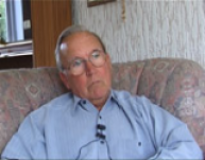Interview 51

More about me...
Describes the process of Cryosurgery and why he wished to have it.
Describes the process of Cryosurgery and why he wished to have it.
Radiotherapy I didn't want, I wasn't interested in that, I thought it was far more destructive than healing in my opinion. I was offered prostatectomy, no I wasn't offered prostatectomy sorry, I was too old for prostatectomy, I was told they only did it if you were below 70 and I was 71. That would've been my choice if I, if I had a choice but I went onto these Depo injections and I think I would've stayed in the Depo injections unless, well until I saw one article in the Telegraph. There was a consultant at X Town who was doing, who was going to set up a surgery doing cryogenic surgery on the prostate.
Cryosurgery is freezing of any part of the body down below 155 degrees Fahrenheit, it freezes whatever the probes are put into and it disintegrates that part of the body which falls away. Probes are placed into the prostate, around the cancer and then it is frozen and that falls away inside your body and the body disposes of it. There are heaters placed to protect certain vital parts of your body, say your anus and your urinal tract and these are carefully monitored. It's a 6 hour operation but it is very painless, there's no after effects. And 3 days after the operation I was able to walk out the hospital and come home although I did have...
A catheter?
A catheter in my, which I used to carry around for 3 weeks. And I had to drink 8 pints of water a day which was no problem plus coffee and tea and I found the catheter very convenient really because I didn't have to look for a toilet when I was out, or in the garden even. And sleeping was no problem, what else?.
So when you went into hospital to have the cryosurgery did you go in the night before?
No I went in at 8 o'clock, no breakfast, and had the operation that started 2 o'clock and it finished at 8 o'clock in the evening, when I came round. I was covered with a heating blanket and a foil blanket, very, very cold, which only lasted about half an hour I suppose and I had a supra-pubic drain placed in my stomach which I passed my urine through and I had a flushing catheter put into my penis which flushed the, my urine out and my bladder and I had 6 spots just behind the testicles where these probes went in and apart from that I didn't feel anything really. They stripped it all out after about 2 days and left the super-pubic drain in and I was, well ready to go home really.
The catheter in my penis came out after about 2 days and I was left with, with just the supra-pubic drain into my stomach which I passed urine through.
So the drain that you came, the catheter that you came home with for passing, that came out of your stomach did it?
It did yes yeah, yeah.
Right.
And yeah as I say it was quite convenient. All I had to do was just connect up a new bag every day and at night I put on a, connected up to a much larger bag because I was drinking so much liquid and I found it very convenient, I didn't have to get up during the night to go to the toilet [laughs] so I was able to get a good night's sleep you know. And when I came home, I went in on the Tuesday, I came home on the Friday and I was fully mobile and I could do most things. And they, the consultant said 'Do what you can, if you feel like you can do it do it you know.' I was unable to drive the car for 3 weeks but apart from that I could do most things. I did gardening, digging and the operation itself was absolutely painless and no discomfort at all.
So having that cryosurgery I am back to what I was when I was a schoolboy and I can pass urine like a school boy and I don't have to keep going to the toilet. I only, I usually get up once during the night, it's only because what I drink in the evenings that I go, but normally I can go practically 5 or 6 hours before I want to go to the toilet.
My consultant says I'm cured but I still have blood tests. My first blood test after the operation well the blood test, PSA test before the operation was 13, it went down to .3 after the operation and the last one I had was about 4 months ago, it went down to .9 and I just had one just recently before I see my consultant again in June so it will be interesting to see what my PSA reading is really.
And how are you now?
I am absolutely A1, there is nothing I can't do, I can lift half a hundredweight bag of potatoes, no problem, I can do, I can dig, it's only my age that's preventing me from doing other things (laughs) but apart from that I can recommend cryoblation.

